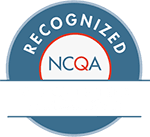High cholesterol levels can significantly impact your overall health and increase the risk of heart disease. Fortunately, there are several effective strategies you can adopt to lower cholesterol levels and promote a healthier lifestyle. Here are five proven methods to help you reduce cholesterol and improve your well-being.
1. Follow a Heart-Healthy Diet:
One of the most crucial steps to lower cholesterol is adopting a heart-healthy diet. Incorporate the following dietary changes into your routine:
- Choose Healthy Fats: Opt for unsaturated fats found in olive oil, avocados, nuts, and seeds, while limiting saturated and trans fats found in fried foods, processed snacks, and fatty meats.
- Increase Soluble Fiber Intake: Foods rich in soluble fiber, such as oats, legumes, fruits, and vegetables, can help lower LDL (bad) cholesterol levels.
- Include Omega-3 Fatty Acids: Omega-3 fatty acids, found in fatty fish like salmon, mackerel, and trout, can help reduce cholesterol levels. Consider incorporating fish into your diet at least twice a week.
- Limit Dietary Cholesterol: Reduce your intake of cholesterol-rich foods like organ meats, shellfish, and egg yolks. Focus on lean proteins, such as poultry and plant-based sources like beans and lentils.
2. Maintain a Healthy Weight:
Excess weight, particularly around the midsection, can contribute to higher cholesterol levels. By adopting a balanced diet and engaging in regular physical activity, you can achieve and maintain a healthy weight. Aim for at least 150 minutes of moderate-intensity exercise per week, such as brisk walking, swimming, or cycling.
3. Get Regular Exercise:
Regular physical activity not only helps with weight management but also plays a significant role in lowering cholesterol levels. Exercise increases HDL (good) cholesterol while reducing LDL (bad) cholesterol and triglyceride levels. Find activities you enjoy, such as jogging, dancing, or playing sports, and aim for at least 30 minutes of exercise most days of the week.
4. Quit Smoking:
Smoking not only damages your lungs but also negatively affects your cholesterol levels. It lowers HDL cholesterol and increases LDL cholesterol, making it harder for your body to remove cholesterol efficiently. Quitting smoking can improve your overall health and significantly reduce the risk of heart disease.
5. Medications and Supplements:
In some cases, lifestyle changes alone may not be sufficient to lower cholesterol levels. Your doctor may recommend medications, such as statins, to help manage your cholesterol. Additionally, certain supplements like plant sterols, psyllium, and fish oil may complement your efforts in reducing cholesterol. However, always consult your healthcare professional before starting any supplements or medications.
Lowering cholesterol levels is essential for maintaining a healthy heart and reducing the risk of cardiovascular disease. By following a heart-healthy diet, maintaining a healthy weight, engaging in regular exercise, quitting smoking, and considering appropriate medications or supplements, you can take proactive steps towards lowering your cholesterol levels. Remember to consult your healthcare provider for personalized advice and guidance on managing your cholesterol effectively.






